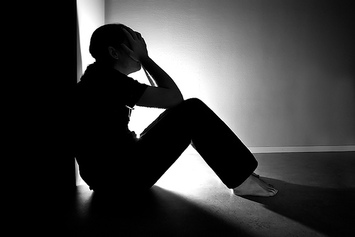Depression
- When life's challenges are perceived to be too big to tackle, chronic stress and a feeling of being overwhelmed can result.
- Most of us have coping skills that get us through difficult periods of stress. However, if one's coping skills are not adequate or the stress does not abate in short order, feelings of sadness and hopelessness may manifest.
- Depression is a state of emotional weariness, low energy, and drained vitality. Depression generally occurs after a prolonged emotionally draining experience such as family conflict, job loss/ job stress, or bereavement and poor readjustment.
- Emotions create chemical reactions in our bodies. Prolonged negative emotions, such as anger or sadness, can disturb the body's hormonal balance (known as the endocrine system) resulting in mood dysregulation and reduced cognitive (brain) functioning.
- Pharmaceutical options are available for treating depression but these medications do not address the life experiences that perpetuate the hormonal dysfunction caused by negative emotions. Psychotropic medications also leave the user at risk for harmful side-effects including developing other physical and/or mental health conditions.
- The safest approach to managing and preventing depression is to improve one's coping skills, resolve emotional disturbances, and learn ways to naturally balance one's endocrine system.
- A therapist can work with you to prevent depression by teaching you cognitive restructuring therapy, healthy living techniques, goal focused planning, relaxation, distress tolerance, and emotional management skills.
- Hope and revitalization are found with us! Call 204-299-7334 today!

